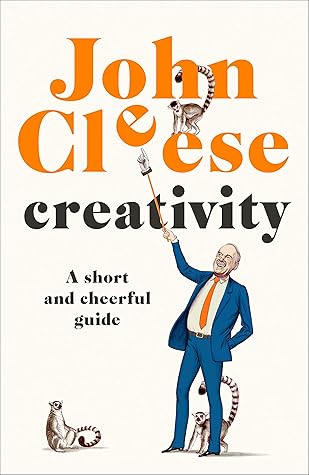More on this book
Community
Kindle Notes & Highlights
This intelligent unconscious of ours, then, is astoundingly powerful. It allows us to perform most of our tasks in life without requiring us to concentrate on them. Without it, we couldn’t function at all. There’d be much too much to think about.
the language of the unconscious is not verbal. It’s like the language of dreams. It shows you images, it gives you feelings, it nudges you around without you immediately knowing what it’s getting at.
there were only two differences between the creative and the uncreative architects. The first was that the creative architects knew how to play. The second was that the creative architects always deferred making decisions for as long as they were allowed.
When MacKinnon talks about “play,” he means the ability to get enjoyably absorbed in a puzzle: not just to try to solve it so that you can get on to the next problem, but to become really curious about it for its own sake. He describes this kind of activity as “childlike.”
deferring decisions for as long as possible.
simply means they are able to tolerate that vague sense of discomfort that we all feel, when some important decision is left open, because they know that an answer will eventually present itself.
if you can wait longer, two incredibly important things may happen. You may get new information. You may get new ideas.
creative people are much better at tolerating the vague sense of worry that we all get when we leave something unresolved.
The greatest killer of creativity is interruption. It pulls your mind away from what you want to be thinking about. Research has shown that, after an interruption, it can take eight minutes for you to return to your previous state of consciousness, and up to twenty minutes to get back into a state of deep focus.
perhaps the biggest interruption coming from your inside is caused by your worrying about making a mistake. This can paralyse you. “Oh,” you say to yourself, “I mustn’t think that because it might be WRONG.” Let me reassure you. When you’re being creative there is no such thing as a mistake.
Einstein once pointed out, if we know what we’re doing when we’re investigating something, then it’s not research!
This involves first creating boundaries of space, and then boundaries of time. You create boundaries of space to stop others interrupting you.
You create boundaries of time, by arranging, for a specific period, to preserve your boundaries of space.
Take August Kekule von Stradonitz, the German organic chemist who discovered the structure of benzene. Once, late at night, he was sitting, staring into the fire. It was an old-fashioned wood fire so there were flames licking around in all directions. As he gazed, they started to look like snakes in his imagination. The more he gazed into the fire in this sleepy, relaxed kind of way, the more they began to look like snakes that were biting their own tails. And as he sat there, half-asleep, it suddenly occurred to him that the snake biting its own tail was a ring—and that so too was the
...more
when you first have a new idea, you don’t get critical too soon.
Many Nobel Prize winners report that their breakthrough came completely out of the blue. After years of pondering, it just…popped into their minds. Some even feel they don’t really deserve their prize, as their idea was “given” to them, without them feeling they’d really produced it themselves!
even the very best minds seem to produce work that can divide itself into three stages. First, they produce original work as they learn their craft; second, when they’ve mastered their craft, they begin to express their mature ideas in their best works; third, there’s a tailing-off of their powers, as their insights become more familiar.
Feynman spent a lot of time playing the drums. The great mathematician John Conway spent much of his time playing games. Playing…keeps you “fresh.”
We came to understand that the blockages weren’t an interruption in the process, they were part of it.
The anthropologist Gregory Bateson once said, “You can’t have a new idea ’til you’ve got rid of an old one.”
Getting discouraged is a total waste of your time.
Writing is easy. Writing well is difficult.
Begin with simple stuff, such as…Who are you writing for?
Then you can start pondering, “What am I really trying to say?”
If you are an experienced writer, and you show people your work, there are four questions you need to ask: Where were you bored? Where could you not understand what was going on? Where did you not find things credible? Was there anything that you found emotionally confusing?


